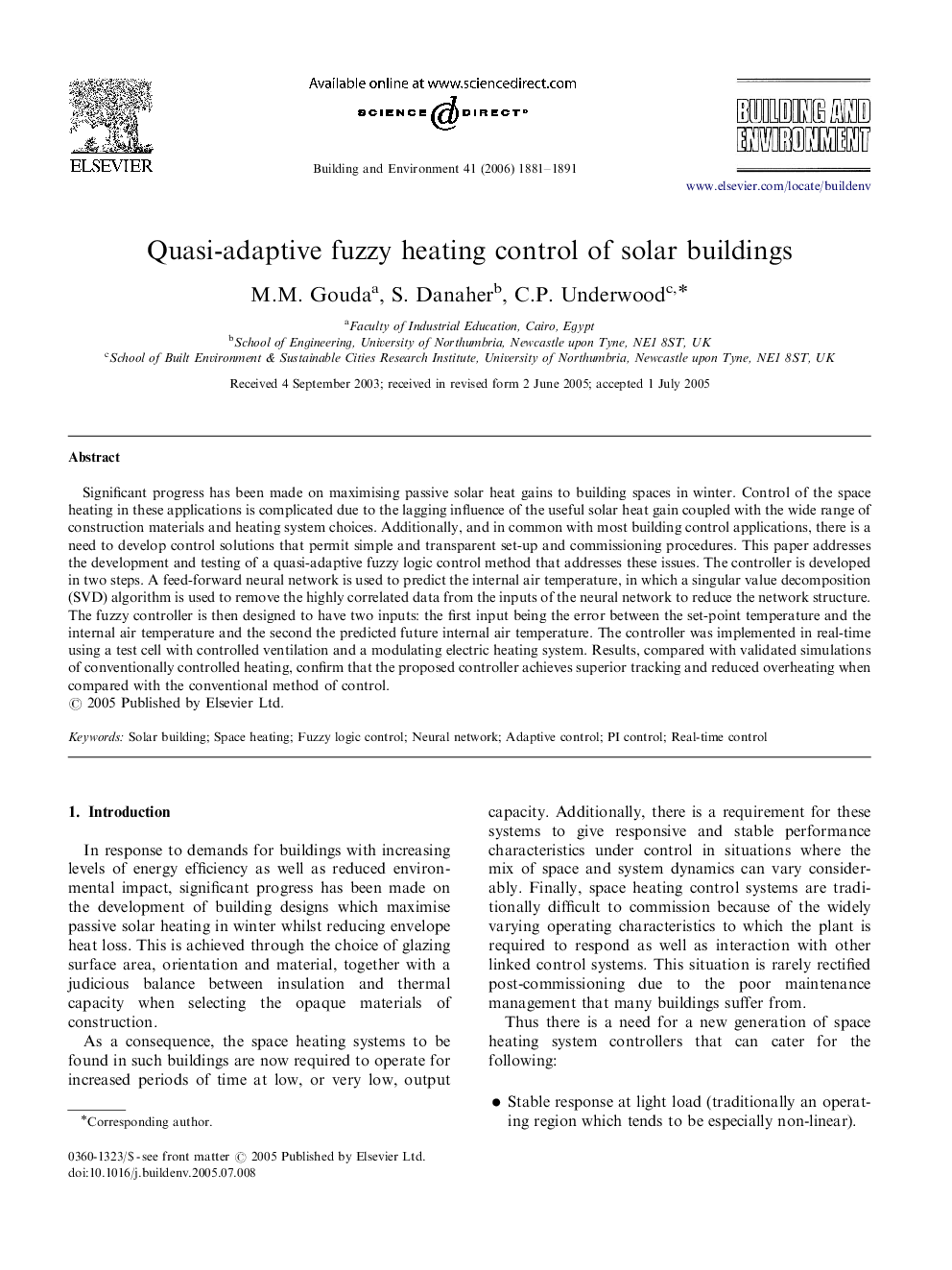| Article ID | Journal | Published Year | Pages | File Type |
|---|---|---|---|---|
| 250363 | Building and Environment | 2006 | 11 Pages |
Significant progress has been made on maximising passive solar heat gains to building spaces in winter. Control of the space heating in these applications is complicated due to the lagging influence of the useful solar heat gain coupled with the wide range of construction materials and heating system choices. Additionally, and in common with most building control applications, there is a need to develop control solutions that permit simple and transparent set-up and commissioning procedures. This paper addresses the development and testing of a quasi-adaptive fuzzy logic control method that addresses these issues. The controller is developed in two steps. A feed-forward neural network is used to predict the internal air temperature, in which a singular value decomposition (SVD) algorithm is used to remove the highly correlated data from the inputs of the neural network to reduce the network structure. The fuzzy controller is then designed to have two inputs: the first input being the error between the set-point temperature and the internal air temperature and the second the predicted future internal air temperature. The controller was implemented in real-time using a test cell with controlled ventilation and a modulating electric heating system. Results, compared with validated simulations of conventionally controlled heating, confirm that the proposed controller achieves superior tracking and reduced overheating when compared with the conventional method of control.
